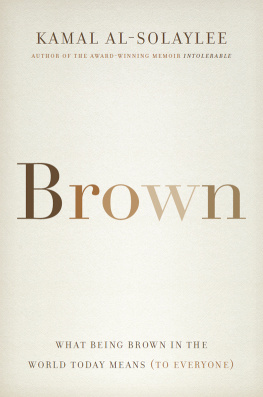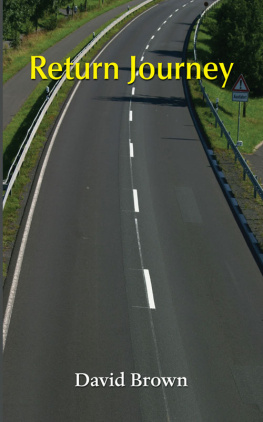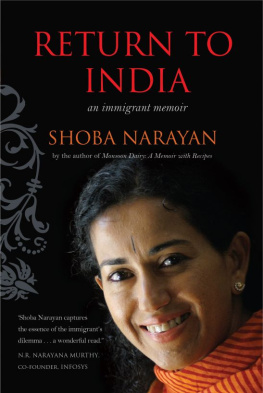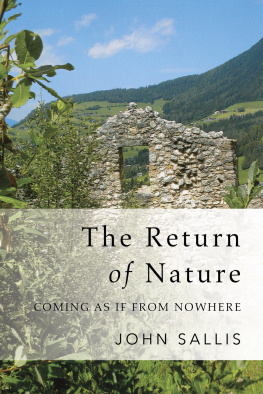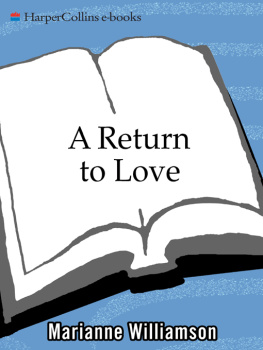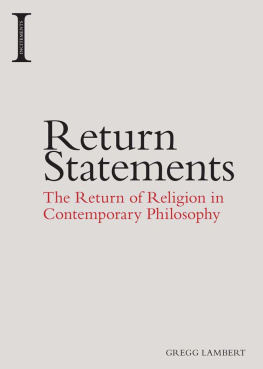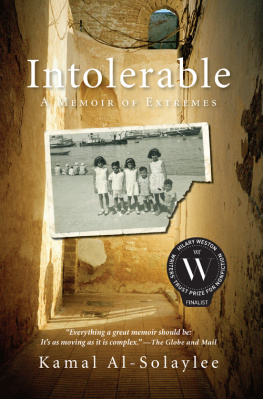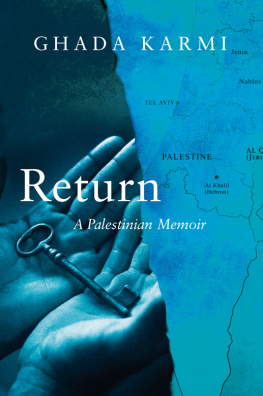Contents
Title Page
Dedication
Part I
Chapter 1. The Age of Return. Maybe
Chapter 2. The Basque Country: A Homeland for the Basques. A Homeland for Everyone?
Chapter 3. Jamaica: Come from Foreign
Part II
Chapter 4. Theres No Business Like Return Business
Chapter 5. Northern Ireland: Call My Brother Back
Chapter 6. Taiwan: The ABCs of Return
Part III
Chapter 7. Ancestral Homelands
Chapter 8. Ghana: The Year of Return
Chapter 9. Israel and the Palestinian Territories: Competing Returns
Coda
Acknowledgements
About the Author
Notes
Also by Kamal Al-Solaylee
Copyright
About the Publisher
W here do you want to be buried?
Since my date and I were walking alongside Mount Pleasant Cemetery in midtown Toronto, the question didnt come as a complete surprise. Its morbidity threw me off, nonetheless. I had planned this to be a romantic post-dinner summer stroll. My dream list of questions included, but was not limited to, Do you want to move in together? and Where would you like to go for our honeymoon? He and I had just braved the crowds at a nearby ice cream shop and devoured double servings of pistachio and chocolate gelato in a scene worthy of a rom-com.
Toronto, I replied.
Although I was born in Yemen, raised in Lebanon and Egypt, and educated in England, I had come to see Toronto (and Canada) as my homeland. I revelled in the kindness the city had shown me and the career opportunities it had afforded me. I dedicated my first book to it, for giving me what Id been looking for: a home. In my second, I called it my sanctuary, a good place to be brown. My love affair with Toronto started the moment I landed at its international airport, on April 20, 1996. Like many immigrants who have left oppressive regimes or escaped civil wars, I think of that arrival date as a second birthday, a parallel timeline in which life began just as I was about to turn thirty-two. I no longer entertained thoughts of a secret unled life because I finally had the one I wanted.
I want to be buried in Sanaa, next to my grandparents, countered my date, who was born near Detroit to a Yemeni family and had spent most of his adult life in the United States. Although he was a natural-born citizen, he didnt think that America deserved his remains because hed never felt connected to it as a country of birth or of residence.
I remember thinking how fortunate I was to claim a dot on the world map as mineone place for my body to play, love, work, grow old and, when the time came, be put to rest. My dates words suggested an inner turmoil and un-belonging to which I was immune.
That exchange took place in August 2012. Barack Obama was three months away from winning his second term as president of the United States. I knew Donald Trump mostly as a C-list reality TV star whod had cameos in Home Alone and on Sex and the City, and as the gauche multimillionaire behind the racist birther movement. Back then, very few journalists and university professors were willing to defend with a straight face the free speech rights of bigots or adopt a both sides approach to one race-based conflict after anotherat least not publicly. American democracy had exhibited signs of weakness before, but it was yet to receive the near-fatal blow of the Trump White House. Canada, meanwhile, was in the advanced stages of a rigid conservative ideology known as Harperism, and Torontos then mayor, Rob Ford, had emerged as a prototype of the populist standard-bearers to come. But these signs of an approaching right-wing backlash didnt strike me as significant thenor more likely, I chose to ignore them. Toronto was too much of a dream come true for me to see beyond my privileged place within it.
If I were asked the same question today, almost a decade later, I wouldnt know how to respond. I suspect I wouldnt be as definitive about Toronto as I once was. My dates remark, which seemed irrational and troubling then, strikes me now as reasonable and in a way prescient. Our relationship has ended, but the question lingers. So much has happened to recalibrate my affinities that Ive been forced to rethink my resting place and where I call home. Theres something broken in my sense of belonging, that necessary mediation between an individual and society that Adrienne Clarkson explores in her book Belonging: The Paradox of Citizenship. In belonging to ourselves and our societies, we have the greatest possibility to live full lives, she writes. And yet, the longer I live in this city, the further I drift away from it and the less it feels like my place in the world.
I cant stop thinking about what it would be like to just go hometo return to the Arab world in general and Yemen in particular, and put my current life behind me.
Maybe Im at a stage when a return to roots is natural and inevitable. Or perhaps the world that has sheltered me from the vagaries of the Middle East for three decades is becoming less hospitable and more vicious to people of darker skin tones and different religions. The idea that Western liberal democracies are declining in popularity among voters frightens me. That never bodes well for racial and religious minorities. In the past five years, Ive experienced more incidents of racism on the streets of Toronto, at work, in interactions with friends and on mainstream and social media than I had in the previous twenty.
Every time I call my family in Yemen to check in on them, they in turn express concerns about my safety. Their local news programs feature a constant rotation of stories about attacks against Muslims in the West. Thats in America, not here, I lie to them. When a gunman stormed into an Islamic cultural centre in Quebec City in 2017, killing six and injuring nineteen, I all but fabricated a history of racism in English Canada and French Canada to set their minds at ease. This sort of thing doesnt happen in English Canada, where I live, I said, fake news-ing my way through the rest of the call.
I knew then and I know now that Im lying only to myself.
I draw a straight line between the insecurities and fears that animate my return thoughts and the United States during the Trump administration, where nationhood hinged on deporting and barring those people (Hispanics and Muslims, respectively) whom the presidents base continues to regard as a threat to the majority status of whites. You will not replace us, chanted neo-Nazis on the streets of Charlottesville, Virginia, during the infamous Unite the Right rally in 2017. With its roots in age-old antisemitism and the Great Replacement (grand remplacement) theory of French writer Renaud Camuswho believes that white Europeans are being reverse-colonized by black and brown immigrants in an extinction-level eventthat phrase has become a rallying cry for the right in North America.
The Great Replacement theory provides context for the rise of far-right Western European politicians who advocate closing borders and repatriating immigrants and refugees. Unofficially, it defined Trumps immigration policies and views on race. Although Trump himself is now firmly in historys dustbin as a president, the legacy of Trumpism will take yearsdecades, perhapsto undo. You can hear and see its echoes in this country in popular Conservative slogans such as Take Back Canada and in the outsized influence of far-right strategists on provincial politics in Ontario and Alberta.
The pandemic revealed what I had known all along: even in a place like Toronto, which projects equality and racial tolerance as its brand, people of colour are often seen as lesser than, expendable. In the first wave of the pandemic, studies suggest, 83 percent of COVID cases were among racialized people, who are more likely to be employed as essential or frontline health workers and in precarious positions with no paid sick days. I strongly believe that the response to the pandemic, on both the municipal and the provincial level, would have been different had its victims not been mostly minorities and the elderly.


